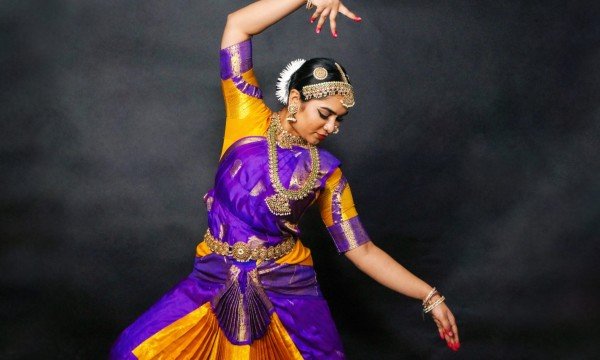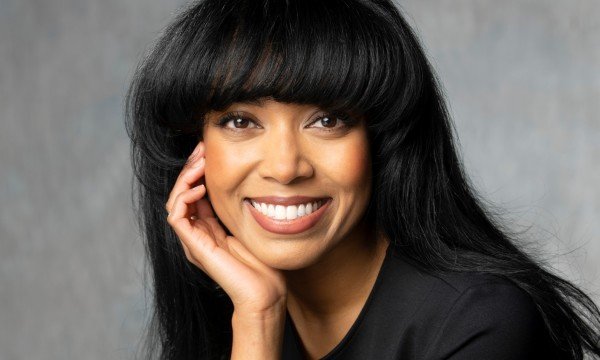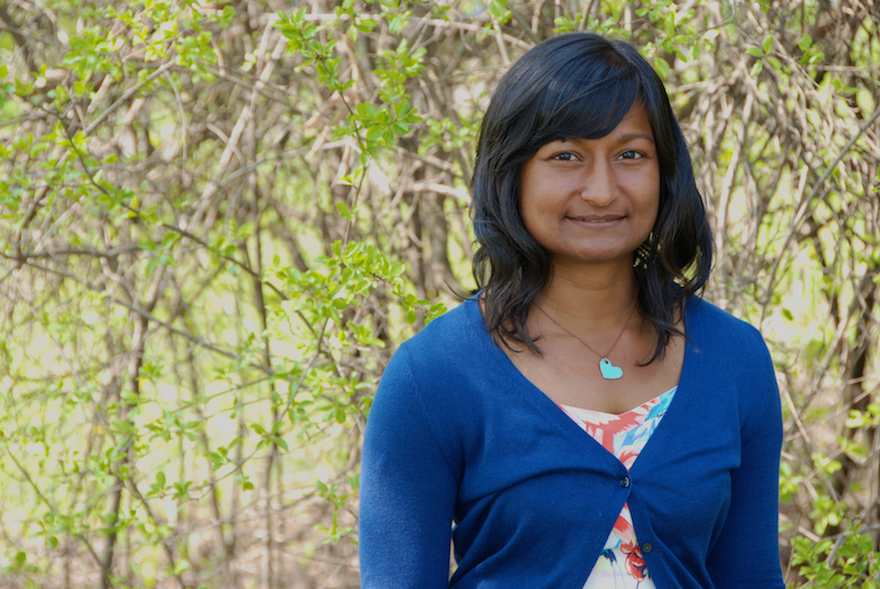
Since the book’s release in January, The Boat People has climbed the bestseller lists and has received widespread critical acclaim. For someone who did not always see writing in her future, Bala has quickly generated buzz for The Boat People and for her work yet to come.
Sharon Bala recently spoke with TC to discuss her popular debut novel and her path to becoming a writer.
1. Tell us about how you became an author.
I began writing seriously in the summer of 2011. I had always written when I was young but when I went to university I set my creative writing aside in favour of a "real" career. Then, in the winter of 2011, I took a night class on creative writing and remembered how much I loved inventing stories. Later that summer, I decided to really try and make a go of writing as a full time career. At first, I wrote short stories, which are like little sprints. In 2013 I decided to try my hand at a marathon: my first novel. At first there was a lot of rejection. I would send short stories out to publications and they would get turned down. But then in 2015 something changed. I had four short stories accepted in very quick succession, and that same year the unpublished manuscript of my novel (The Boat People) won an award and was short listed for another. This success led to signing with an agent. Early in 2016, my agent sold my book to two publishing houses (one in the US and one in Canada). The book is now available around the world in English and we have sold foreign language rights in French, Turkish, and Arabic. If someone had told me when I was younger that I'd one day be a full time author, I would never have believed it. It feels like I've won the lottery!
2. A career as a writer is not commonly encouraged by parents, let alone parents in the Tamil community. Did you face any backlash from your family when you decided to take on writing full time?
I think my parents were mostly baffled when I told them that I was writing a novel! My mother gave me very useful feedback on the first draft and my father was a big help when we were recording the audiobook. So in truth, my parents were a part of the book's creation. They are both really proud of the book and its success. (My mom likes to tell me how many holds are on the book at the local library...haha) Recently they went to a St. Thomas' Old Boys dance and people they didn't know were asking if they were related to the author of The Boat People! Like me, they are finding the book's sudden success very, very surreal.
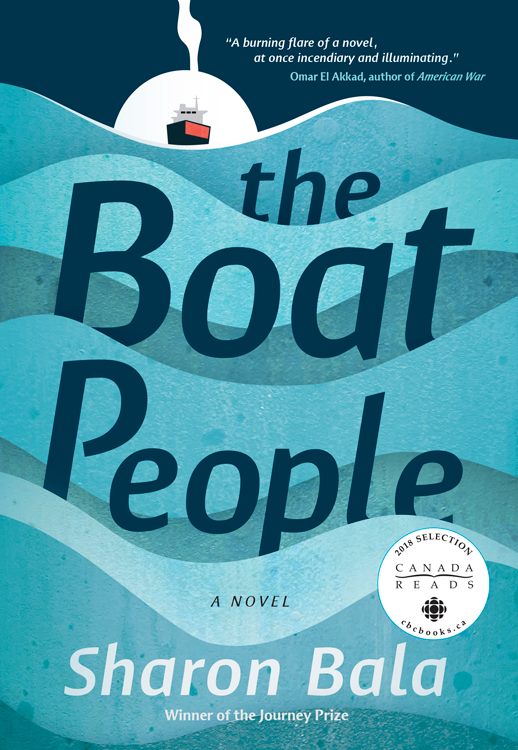 Photo courtesy of Penguin Random House Canada
Photo courtesy of Penguin Random House Canada
3. Your debut novel, The Boat People, is about a group of refugees from Sri Lanka who arrive to Canada on a cargo ship. It has received widespread acclaim and was a finalist in this year’s Canada Reads competition. What was the inspiration behind the book?
The inspiration came from the arrival of the MV Sun Sea and the Ocean Lady, two ships bearing asylum seekers from Sri Lanka. But there was very little on the public record about the actual people on these boats, so I had to invent all my characters and their back stories. Although these two real ships gave me the idea for the book, the novel itself is very much a work of fiction. Other inspiration came from my research into all the various groups of people who have come to Canada over the years and also the way different people are treated in different time periods. I'm very interested in how and why people who are newcomers themselves can very quickly turn around and slam the door shut on other people trying to come in. I'm also interested in willful amnesia, how the country and its citizens are so quick to forget the wrongs of the past and then continue to perpetuate those wrongs in the present. Another personal fascination is family secrets, which I think can make people ignorant of their own personal histories.
4. You wrote a very vivid account of what it was like to be a refugee coming to Canada. What research or preparations did you undertake before you started writing?
Oh, there was so much research that went into the book! In terms of understanding the refugee experience, I read up on Canadian law and also looked at research studies that have been done on refugee board hearings. I tried to get as many newspaper articles about the MV Sun Sea as I could and also read all the cruel online comments on news and anti-immigrant sites. And of course there was a ton of research into the Sri Lankan war and the conditions in the north at the war's end. But at some point, when you are writing a work of fiction, you have to set the research aside and light the match on your imagination. The biggest thing I did was to just try to imagine what it was like to be Mahindan and Sellian and all my other characters. I put myself in their shoes and asked myself what I would do and think and feel when faced with the tragedies they endured.
5. To what extent did your own immigrant experiences shape your writing in the novel?
I suppose this would have been a different book if I wasn't myself an immigrant. The thing I really wanted to explore was the divide between immigrant parents and their third culture children. But then other immigrant quirks made their way into the book too, like our penchant for changing and shortening our names (I'm obsessed with names!), and the motto of "work hard and sacrifice" that I think is shared by many different immigrant groups. What I try to show in the book is all the ways we are similar. For example, in researching Japanese history, I came across this curious fact that traditionally family names come before given names, just like in Tamil culture! And then I also found this poignant Japanese expression: "it can't be helped." That's so similar to the Sri Lankan refrain "what to do?"
6. What projects do you currently have in the works?
Promoting The Boat People is a full time job at the moment, but I am trying to get a new novel off the ground.
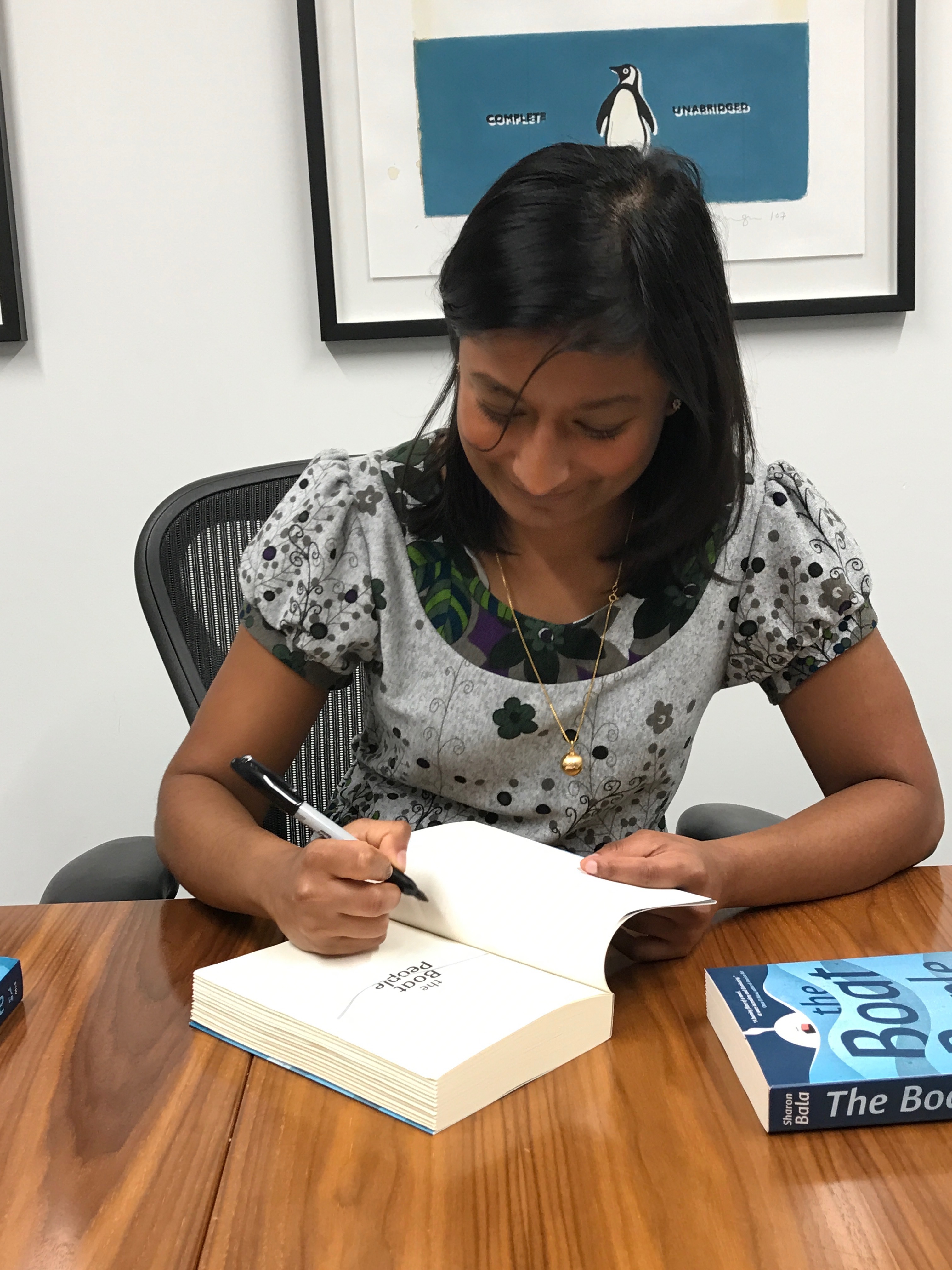
Photo courtesy of Laura Chapnick
7. Who are your literary inspirations? Favourite author? Favourite books?
The very best book I've read recently is Kamila Shamsie's Home Fire. It was on the short list for the Booker and is on the short list for the Women's Fiction Prize in the UK. It's a novel about loyalty, treason, complicated families, and young people being radicalized. And it's also a love story and a modern day retelling of Antigone. Yes, all of this in one book! She's a genius.







